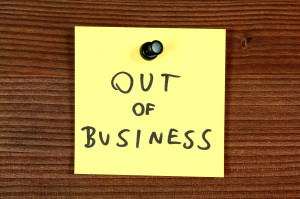Expose Yourself Out of Business
“We priced it low because we wanted the exposure.” Every young, and even some seasoned entrepreneur can fall on the trap of the “exposure” temptation. In the search for legitimacy and clout, entrepreneurs want to have the recognizable “big fish” names in our portfolios. After all, that means great PR and lots of new clients, right? Wrong.
There are several traps of such reasoning:
It sets the wrong expectations. You will enter an organization at the wrong level. Your first job defines what level of player you are. You do not want to be the “cheap” guy. Trust me on this one.
It’s not sustainable. Even if your project is successful and the client loves the results, you have set an unrealistic expectation of cost, timelines, and services. When your next bid comes in at twice the price of your first, your new client will balk. “They’re good but not that good.”
It prevents you from doing your best work. When you’re scraping to get things done, working late hours, and doing things on “the cheap” you cannot do your best. Lacking margins and the budget to get the job done properly will hurt you later. The client will not give you grace because of all the extra effort. More likely they will give you grief for the extras they expected you to do.
The law of inversion always applies: The least profitable project has the most demanding client. This happens to me all the time. The project that you are doing mostly as a favor where you have very little or no profit turns out to be the project from hell. You end up losing money, patience, and your religion by the time the project is finished.
Next time you feel the urge to lower your prices or compromise on your timeline just to “get in,” think twice. Better yet, don’t do it. If your work is good and you’re worth it, win the business on your strengths and not by creating artificial, unsustainable, unreasonable expectations. That’s often a lose-lose situation
Have you been burned by trying to take on a project or client in order to can exposure?
Subscribe
Delivered by FeedBurner


Pingback: Expose Yourself Out of Business | Maurilio Amorim « Lawrence Ford()